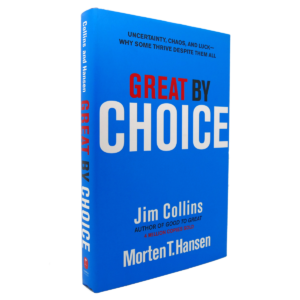
"You are not the victim of the world, but rather the master of your own destiny. It is your choices and decisions that determine your destiny.”
― Roy T. Bennett
A common issue facing many of us is the ability to fit all of our work and personal lives into the time we have available. Most often it is the personal part of our life that inevitably suffers as we work longer hours, and fail to disconnect during the evenings, on weekends, or while on vacation. In some cases, we are already starting to see the impact of that imbalance in our significant relationships, our friendships, our health, or our dreams. We will often describe our challenge as one of “Time Management” and look to well-worn tools and techniques for managing our time more effectively.
There is of course an entire industry dedicated to Time Management. You will find videos, books (summarized to save time of course), apps, and gurus ready and willing to help you pack more into your day. Using techniques such as getting up earlier (seriously!), building to-do lists, setting clear agendas, setting time limits, and so on, they promise to help you squeeze that quart into your pint pot. Chances are, however, that you have already tried many or all of these techniques and are either (1) finding they don’t work or, more likely, (2) finding that when they do work, the time you free up is consumed by… yet more work!
That’s because you don’t really have a time management problem. You have a priority management problem.
Ask yourself the following questions:
- “Whose work are you really doing? What’s your work?”
- “When you’re doing all this work, what aren’t you doing? What is the cost of that?”
- “What values are you honoring or failing to honor in your life when you take on more work than you can handle?”
- “If you solved this problem, what would your life look like?”
These are the kind of powerful questions that begin to challenge the assumptions, beliefs, habits, and behaviors that allow you to sacrifice your dreams to do someone else’s work. That last one, in particular, can really get to the heart of it: Rarely do you hear someone describe a vision for a life that is entirely full of work. They will also talk about their family, their friends, their community, their health, and their happiness. They will describe a vision of a future where they have it all – a successful professional life coupled with a fulfilling personal life.
As you reflect on that vision, you can start to explore your priorities, both now and for the long term. How is your behavior today serving the vision you’ve described for your ideal future? And how is it contradicting the values you’ve described? You will begin to see that you are making choices that either align or are misaligned with the life you long for, and that is the most powerful insight: You are always at choice.
So, do your choices reflect your true priorities?
This week’s inquiry…
Do Your Choices Reflect Your True Priorities?
More to enjoy…
One of the founding fathers of the ‘better choices’ movement, Daniel Kahneman explains how our two decision-making systems work, and which one you should use when you’re making decisions that really matter.
“You can avoid decision-making mistakes by understanding the differences between these two systems of thought.”
In great by choice, Jim Collins explores the power of the conscious choice in the success of leaders and companies. The best leaders are not more risk-taking, more visionary, and more creative than the comparisons; they are more disciplined and more empirical. Taking the time to make the right choice, rather than being driven by the agenda imposed on you by external forces, can be transformational.


